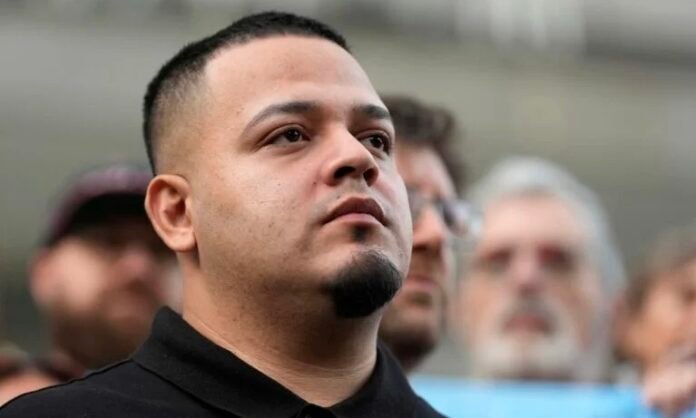The U.S. Justice Department announced Friday that the Trump administration has reached an agreement with Liberia to accept Kilmar Abrego — the migrant whose wrongful deportation to El Salvador in March drew widespread attention and criticism of the administration’s immigration policies.
According to a court filing, Abrego could be transferred to Liberia as soon as October 31. However, Maryland-based U.S. District Judge Paula Xinis has temporarily blocked his deportation while reviewing his request for release from immigration detention. It remains uncertain how the new arrangement with Liberia will affect her decision.

Liberia’s information ministry confirmed it agreed to receive Abrego “on a strictly humanitarian and temporary basis” following a U.S. request. The ministry added that Abrego would not be sent to “any country where he may face substantial risk of persecution, torture, or other serious harm.”
The agreement makes Liberia the first African nation to accept Abrego after previous U.S. efforts to send him to Uganda, Eswatini, or Ghana failed.
Abrego, a sheet metal worker who entered the U.S. illegally, had been living in Maryland with his wife, their child, and her two children — all American citizens — when he was detained and deported to El Salvador. His deportation violated a U.S. court order, and he was held in a notorious Salvadoran mega-prison before being returned to the United States in June.
Since his return, the Justice Department has charged Abrego with migrant smuggling, allegations he denies. His lawyers have accused the administration of retaliatory and politically motivated prosecution. The government, meanwhile, claims Abrego has ties to the MS-13 gang — an accusation his defense rejects.
Simon Sandoval-Moshenberg, Abrego’s attorney, criticized the administration’s plan to send his client to Liberia, a country with which Abrego has no personal connection. “The government has chosen yet another path that feels designed to inflict maximum hardship,” he said, calling the move “punitive, cruel, and unconstitutional.”
Abrego’s potential deportation could also affect a November 4–5 court hearing in Nashville, Tennessee, where his lawyers plan to argue that criminal charges against him were filed in retaliation for his legal challenge to the March deportation.
The Justice Department has emphasized Liberia’s “historic ties” with the United States, citing its record of “humane treatment of refugees” and “robust” human rights protections. However, a 2024 U.S. State Department report noted ongoing human rights concerns in Liberia, including instances of extrajudicial killings.
Abrego’s lawyers have urged the administration to consider Costa Rica — a Spanish-speaking nation that has expressed willingness to accept him — but U.S. officials have not agreed to that option.
Source:Africa Publicity








